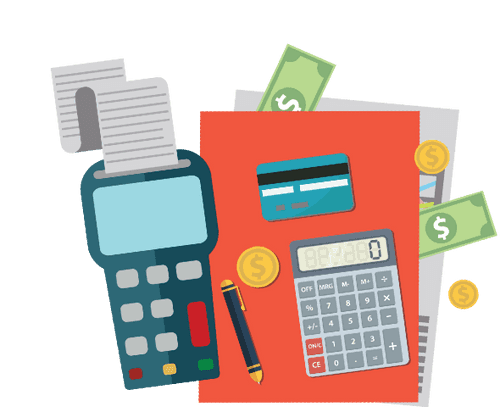When it comes to mortgages, it’s safe to say that there are many moving parts to this process. At Homewise, our goal is to make things simple, accessible and easy to understand, whether you’re a first-time buyer or a current homeowner. Here are some of the most common mortgage questions we’ve recently received along with detailed responses from our team of Mortgage Advisors.
1. Can I prepay my mortgage if I have extra money?
If you’ve recently received a monetary gift or got a raise at work and you’re thinking of paying a lump sum toward your mortgage to pay less interest over time, this is definitely possible. However, your ability to do this depends on the prepayment privileges within your mortgage contract. Some lenders offer 5%, others 15% and some offer even more, allowing you to pay down your mortgage faster either monthly or annually.
Example:
Cindy has a $500,000 mortgage with a 25-year amortization period at a rate of 2.5%. She is 6 years into her mortgage and just got a pay raise. Cindy decides that she will be paying down her mortgage an extra 2% this year, resulting in a lump sum payment of $10,000 for the year ($500,000 x 0.02). With 19 years left on her mortgage (25 years - 6 years), this additional payment of $10,000 will result in interest savings of $4,750 (0.025 x 10,000 x 19).
As outlined in the example above, making a prepayment on your mortgage is a great way to pay less interest and save money over time. That’s why it’s important to shop around for a mortgage and consider the different features like monthly prepayment privileges, annual lump sums and potential penalties,especially if your long-term goal is to pay down your mortgage as quickly as possible.
In the case that you came into a very large sum of money and wanted to pay off your mortgage completely, this would not be possible until the end of your term unless you’re willing to pay a penalty. Some of these penalties can cost up to tens of thousands of dollars, so understanding the features of your mortgage from the beginning will save you money in the long run.
Bonus: How to calculate the estimated prepayment penalties if you need to break your mortgage
If you have a fixed-rate closed mortgage, there are two ways to calculate prepayment penalties. In this situation, your lender will take the greater of: the amount equal to three months’ interest payments for your mortgage or something that is called the interest rate differential (IRD). The IRD penalty can be very large (we are talking tens of thousands of dollars) depending on the lender you go with, so it is important to consider this when choosing a lender. If you have a variable-rate closed mortgage, your penalty will only be calculated based on three months' interest. In this case, you don’t have to worry about incurring large IRD penalties if you want to pay down your mortgage faster.
Example:
Mark and Vanessa have a 5-year fixed rate mortgage with an interest rate of 3% and a remaining balance of $100,000. Mark recently inherited $100,000 from his family and has decided to put this money toward their mortgage. There are 36 months left until they reach their mortgage maturity date. Today, the interest rate for a mortgage with a similar term is 2%. Given that they’ve already used the prepayment privileges available to them, they may be subject to a penalty fee. Here’s how they could estimate the charge:
Option 1: Estimate the cost of three months’ interest
Step 1: Multiply the amount you want to pay by the interest rate.
$100,000 x 3% = $3,000
Step 2: Take that amount and divide it by 4 (12 months of a year divided into four 3-month parts).
$3,000 ÷ 4 = $750
Therefore, in Option 1, the penalty to break the mortgage is $750.
Option 2: Estimate the IRD
Step 1: Subtract the discount you received on your existing mortgage (if any) from the current interest rate for a mortgage with a term that is similar to your remaining term.
2% - 0.5% = 1.5%
Step 2: Subtract the new interest rate from the original interest rate of your mortgage.
3% - 1.5% = 1.5%
Step 3: Take that amount and multiply it by the amount you want to pay and the number of months left until your maturity date. Then, divide that number by 12.
(1.5% x $100,000 x 36 months) ÷ 12 = $4,500
In this case, the IRD amount is higher than the amount of three months’ interest. Therefore, Mark and Vanessa will have to pay $4,500 in prepayment penalties if they choose to make a lump sum payment of $100,000 toward their mortgage.
2. I got a 5-year mortgage in 2020. If rates double by 2025, will my payments double too?
To best answer this question, let’s look at an example. Sandra purchased a $780,000 home and has a mortgage of $624,000 with a 5-year fixed rate of 1.5% and a 25-year amortization period. Her monthly payments will be $2,494.24. After 5 years, her mortgage balance goes down to $517,120, and she decides to renew for another 5 years with a fixed rate of 3%. The payments will now be $2,863.13 per month. This means that her monthly payments only increased by $368.89. So, if rates were to double, your payments may increase but they won’t double as your total mortgage principal will have decreased over time.
3. I'm thinking of becoming self-employed. Should I get a mortgage now or later?
If you’re self-employed and applying for a mortgage, the requirements for buyers, switchers and refinancers are slightly different. You will be required to prove that you have a stable source of income with at least two years of tax documents. Lenders will then average out this income to determine your eligibility for a mortgage. If you’re currently receiving a regular T4, are ready to purchase a home and would like to get a mortgage from Prime A lender, then it might be wise to begin the process before becoming self-employed. Although there are plenty of great mortgage options for self-employed buyers, applying for a mortgage before you make this career switch will increase your chances of qualifying with an A lender.
4. What can I do to save on mortgage interest?
There are a few ways you can save on mortgage interest. First, consider making a larger down payment when you buy. Your monthly mortgage payments will be lower and you may be eligible for a better rate. Another way to save on interest is by shopping for different lenders and comparing rates and features such as prepayment privileges, penalties and portability. These terms allow you to make additional payments toward your mortgage so you can pay it down faster and in turn save on interest over time. Finally, choosing a shorter amortization period or accelerating payments, which enable you to make more payments per year and also reduce the interest paid on your mortgage by allowing you to pay it off in a shorter time span.
5. How do I know I'm dealing with a licensed mortgage professional?
For every buyer, finding a licensed mortgage professional who you can trust is essential. To ensure that you’re working with a credible and licensed individual, do your research. Go directly to the FSCO website and search up any mortgage agent, broker, brokerage or administrator. If you find yourself in a situation where someone refuses to share their license number, then it’s probably best to continue your search elsewhere. At Homewise, each of our Mortgage Advisors are fully licensed and actually get re-licensed annually by the provincial government of Ontario.
We understand that you may have a lot of questions when it comes to the mortgage and home buying process. That’s why we provide every Homewise borrower with a personal Mortgage Advisor to guide them at every step and answer any questions. We also work with over 30 banks and lenders to ensure they get a mortgage that best suits their specific needs. You can also visit our blog for even more answers to your questions!







